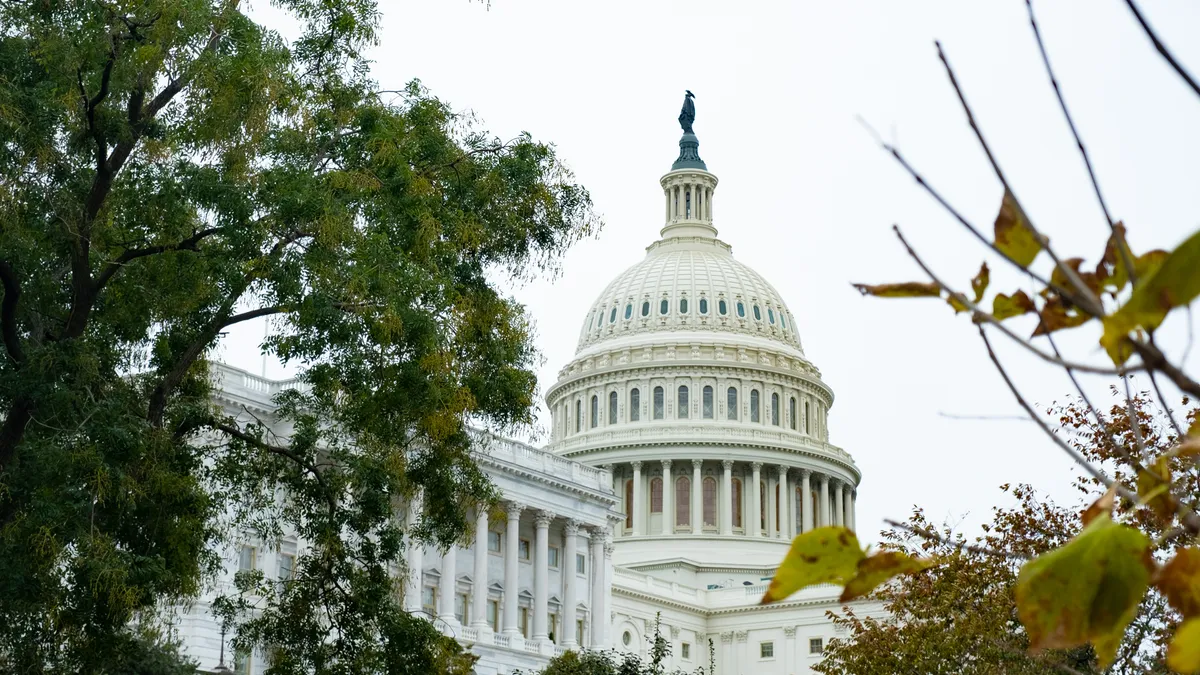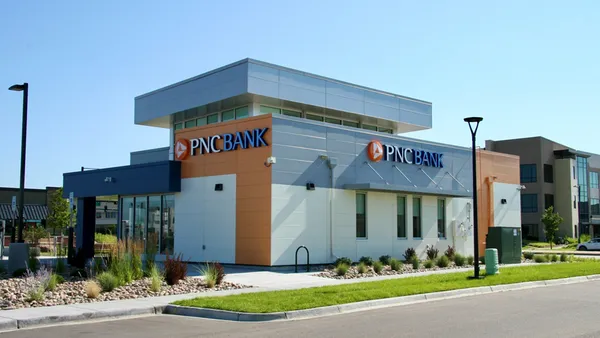UPDATE: June 25, 2021: The House on Thursday voted to repeal the Office of the Comptroller of the Currency’s "true lender" rule, a Trump-era policy that has drawn flak from Democrats for the leniency it gives nonbanks and payday lenders to avoid state caps on interest rates charged to consumers by partnering with national banks headquartered in less restrictive states.
House lawmakers voted 218-210 to pass a Congressional Review Act (CRA) resolution to overturn the rule, which was finalized in October. One Republican sided with 217 Democrats in voting to revoke the rule.
The Senate passed the resolution last month, and it now heads to President Joe Biden’s desk, where he is expected to sign it.
Proponents of the true lender rule argue it provides greater regulatory certainty for banks to expand their offerings, and it gives consumers more financial options.
Acting Comptroller Michael Hsu, in a statement Thursday, said the OCC respects Congress's role in reviewing regulations under the CRA.
"As we anticipate President Biden signing the resolution, I want to reaffirm the agency’s long-standing position that predatory lending has no place in the federal banking system," he said. "Moving forward, the OCC will consider policy options, consistent with the Congressional Review Act, that protect consumers while expanding financial inclusion. Both of these priorities are part of the agency’s mission of ensuring that national banks and federal savings associations provide fair access to financial services for all Americans and that customers are treated fairly."
Dive Brief:
- The Senate on Tuesday passed, by a 52-47 vote, a Congressional Review Act (CRA) resolution to overturn the Office of the Comptroller of the Currency’s (OCC) "true lender" rule.
- Three Republicans — Sens. Cynthia Lummis of Wyoming, Marco Rubio of Florida and Susan Collins of Maine — joined Democrats in support of the resolution. Lummis, for one, said she plans to introduce a bill to provide regulatory clarity surrounding bank-fintech partnerships.
- The CRA lets Congress repeal a regulation with simple majority votes in both chambers and the president’s signature. The Biden administration, in a statement before Tuesday’s vote, said the OCC’s true lender rule "undermines state consumer protection laws and would allow the proliferation of predatory lending by unregulated payday lenders." Rep. Jesús G. "Chuy" García, D-IL, has introduced a measure in the Democratic-majority House to reverse the true lender rule. That chamber has until the end of this Congress’s term to pass it.
Dive Insight:
The OCC’s true lender rule has drawn flak for the leeway it gives nonbanks, including payday lenders, to avoid state caps on interest rates charged to consumers by partnering with national banks headquartered in less restrictive states.
The rule, finalized in October, clarified that a bank would be the true lender on loans made in partnership with third parties if, as of the origination date, it funds the loan or is named the lender in the loan agreement. If one bank is named the lender in the loan agreement and another bank funds the loan, the former is the true lender, according to the rule.
But it’s exactly that clarity that spurred banking trade groups such as the American Bankers Association (ABA) to oppose the use of the CRA to repeal the rule. The CRA bars regulators from enacting a replacement rule that is "substantially similar" to one repealed by Congress.
The "legal certainty" of a binding agency rule "has tangible benefits for borrowers seeking affordable credit and for market participants," trade groups wrote in a joint letter last week. Without the rule, courts could apply varying standards to determine which entity is the true lender, which in turn could discourage lending, the groups wrote. In a follow-up letter Tuesday, the ABA said the rule needs to be strengthened, but invalidating it through the CRA may deny the next OCC chief a chance to modify it.
Acting Comptroller Michael Hsu, on his first day in the regulator’s top role Monday, said he would announce a review of key regulatory standards and various pending matters but did not mention any by name.
Lummis, meanwhile, said the OCC’s rule would let national banks make and assign loans more easily than state-chartered ones.
"[The true lender rule] has potential to upend parity between state and national banks," she said on the Senate floor ahead of Tuesday’s vote, according to American Banker. "For innovation to truly be lasting, it has to be built on a solid foundation, and not pick winners and losers between national banks and state banks."
Senate Democrats such as Majority Leader Chuck Schumer, D-NY, cited that more than 40 states have passed laws to limit interest rates nonbank lenders can charge and criticized the Trump administration and its appointees for allowing the "loophole" the true lender rule creates.
Sen. Chris Van Hollen, D-MD, introduced the anti-"true lender" resolution in March. Senate Banking Committee Chairman Sherrod Brown, D-OH, has called for the OCC to revoke the rule, saying it was "rushed through."
"We know why these commonsense laws that our states passed are popular, and enjoy bipartisan support in states across the country," Brown said Tuesday ahead of the vote. "People don’t want abusive lenders to prey on them, their loved ones, or their neighbors."
The banking panel’s ranking member, however, said overturning the rule would hinder lower-income Americans’ access to credit and stifle innovation.
"Community and midsized banks — who lack resources to develop banking technology in-house — are partnering with fintechs to compete more effectively," said Sen. Pat Toomey, R-PA. "These partnerships benefit consumers. By increasing competition in lending markets, they lower the price of financial products, improve credit options and expand consumer choice."
Lawmakers have used the CRA one other time this term to roll back a Trump-era policy. The Senate voted last month to repeal relaxed methane emissions standards for oil and gas wells, Bloomberg Law reported. The House has not followed.














